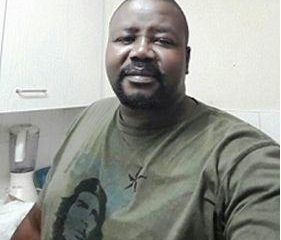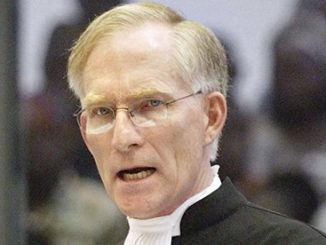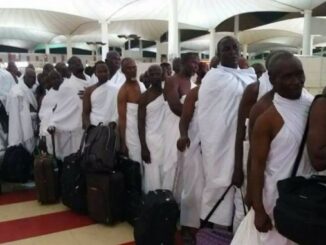
Freedom is nothing but a Chance to be better: Declare Freetown-Freedom Day.
The Atlantic slave trade lasted for years (over 400 years), but freedom lasts forever. Slavery was commonly known as a condition in which another owned one human being. This meant that the law considered such persons as property, and deprived of the rights that is usually accorded to free persons. Historians put it that on the 25th March 1807, the Abolition of the Slave Trade Act entered the statute books and became law. However, the Slave Trade continued until 1811 and it effectively ended in 1787. Historians have given us many reasons and factors that led to the abolition of the trade; including the work of philanthropists like Granville Sharp and William Wilberforce. Others cite the coincidence with the French Revolution, the Maroon uprisings, and other individual acts of resistance.

However, the slave masters and rich landowners put up strong resistance against the abolition. Many believe that the Industrial Revolution put the last nail to the coffin of their resistance. Conventional wisdom has it that the pro-slave trade brigade realised that with machine replacing man, slavery and plantations were no longer profitable; that wage labour and a more profitable use of ships, among others made more economic sense. The Berlin Conference in 1884-85 marked the birth of the colonisation of Africa. African countries were locked in prenuptial marriages with their colonial masters until independence. So with slavery came colonisation and then independence. That is my nonprofessional understanding. Slavery lasted for years, but Freedom has since lasted forever.
Sierra Leone gained independence from its colonial masters on 27th April 1961. Among other factors, the end of the Second World War in 1945 injected a negritude sense of self-actualisation in the mind-set of African leaders and their respective peoples. With independence, Sierra Leone like many other countries gained the right to self govern. In short, we took control of our own destiny. We took control of our constitution, our laws, our economy, our hopes, dreams, everything and anything Sierra Leone. With independence, came the overriding national hope, the belief and desire that, if we are in charge of our own affairs, our lives will be better, However, have we really? So what has our independence brought us?
As a country, we have always prided ourselves in celebrating April 27. There is no shame in that; for there can hardly be a better feeling for a sense of nationhood. Nevertheless, as we have continually observed this annual ritual, the relevance of which many have questioned over the years. For those with the experience of pre-independent Sierra Leone, it is usual to hear them reminisce about the days of Governors, the John Bulls, PZ, Bata, and the trains to Blama, the double decker buses, Sawpit, and many more. Their feelings of nostalgia are usually captured in despair and longing for the return of the old days. To all intent and purposes, many of those people tend to prefer those days when Sierra Leone was “Sweet Salone”. How times have changed.
Independence celebrations always have their positive sides, but with continuing deterioration in our standards and high cost of living, the lack of services and facilities tend to generate a sense of apathy for Independence Day celebrations. Some see it as a reminder of our collective failure to actualise the dreams and hopes, for which they fought for our independence. Since independence, it is no secret that successive governments have over the years, presided over the systematic dismantling of all or most of the structures that our colonial masters bequeathed to us. In effect, we have successfully demonstrated our inability to manage our affairs and shape our destiny for a better future. Is it worth spending large sums of money to remind us of our failures and ineptitude?
We have many public holidays in our national calendar, including International Women’s Day, Armed Forces Day, and other religious ones like Christmas, Easter, Eid Ul fitr etc. Freetown has just celebrated its 229th birthday. Not withstanding its epoch making significance, the history and life changing relevance of this day is worth its celebration in gold. For instance, the 11th March 1792 did not only mark the birth of Freetown, but symbolised the end of one of the most barbaric acts committed against our people. The date marked a homecoming and redemption. It was a re-birth, re-identification and one of those rare “let my people go moments”. When you factor the importance and relevance of this moment in our history, consider the implications for not only Sierra Leoneans but also Africa as a whole, you cannot help but agree that there are more than enough reasons to celebrate it.
The 11th March 1792 marked a Freedom that lasts forever. The freedom that climaxed into this day meant that the law outlawed the “condition in which another owned one human being. This day symbolised a change in the law that hitherto “considered such persons as property, and deprived of the rights that is usually accorded to free persons”. On this day our freedom was complete, we became free to exercise our freedom freely in Freetown. This day marked the birth of our capital city, and it was from this day and in this place Freetown, that the inhabitants, out of man’s natural desire and need to communicate, evolved the Krio Language. It goes without saying, that the Krio Language that evolved from this collection of various languages was not only a linguistic solution to a diverse background, but has also survived to become the most widely spoken and our Lingua Franca of our country. The krio Language by extension, paradoxically represents our diverse similarities of our heritage and culture. If such a moment is not worth a national celebration, what is?
In looking at both occasions through different prisms, it is understandable if some see our day of Independence Day comparatively less worth celebrating. To all intents and purposes, and if we look at all the ills in our country today, it sounds plausible that 27 April, 1961 was the day we took control to engage in national self harm behaviour. Since independence, it seems like we took control of our affairs to sadly ensure that poverty, tribalism, corruption, nepotism; regionalism, etc. became our modus operandi. Interestingly, we never miss the opportunity to remind ourselves of our collective failure. We celebrate it. So what do we really celebrate on 27th April?
Is it time that we include the 11 March into our national calendar? Will such a celebration help keep our history in our psyche and in effect our collective identity? When you gauge the level of division that is permeating and coursing through the political and social veins of our society today, and in spite of the fact that such veins literally carry red blood cells of Sierra Leoneans, it becomes plausibly possible that a national public holiday and celebration of Freetown, the capital city and point of homecoming on 11th March will be a blessing and healing balm; worth all its weight in gold. Let us declare 11 March a National Public Holiday. Who is with me?
Let us remember that we do not make history; we are made by history. Rather than see our history as a burden on our memory, we should use it to illuminate our soul. Our society will be a tree without roots, if we do not know and celebrate our history, culture and origin.
When you turn the lights out as you leave the room, remember not to turn the lights out on our history.
Abdulai Mansaray
.



